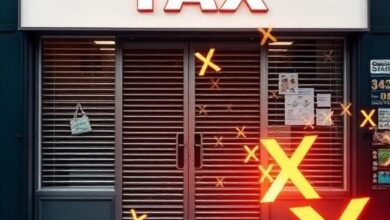KSA Charts New Course in Regulatory Approach Amid Warning of Comprehensive Advertising Ban

The Netherlands Gambling Authority (KSA) has unveiled a progressive framework dubbed “regulator 2.0,” signaling a shift towards a more collaborative and adaptable regulatory environment. This initiative aims to bolster support for industry operators while addressing ongoing concerns about illegal gambling activities. Nonetheless, the KSA issued a stern warning that, if current compliance issues persist, it may impose the most sweeping KSA gambling advertising ban to date.
During the Gaming in Holland Conference 2025 held on Thursday, Renske Fikkers, head of the KSA’s regulatory division, articulated a vision of transformation. She emphasized the agency’s intent to move away from its traditional image as an “unreachable, rigid regulator,” often associated solely with enforcement actions and fines.
Fikkers elaborated on the “regulator 2.0” strategy, which seeks to foster a more transparent and flexible organizational structure. The goal is to collaboratively address the sector’s most pressing challenges through open dialogue and proactive engagement.
“We understand that imposed measures sometimes require adaptability and that post-implementation there are obstacles or ambiguities that we could not have anticipated beforehand,” Fikkers stated. “Being able to have an open conversation about that helps us further strengthen our regulation. We also have more frequent direct contact with operators in that context. When we come across things we have questions about or are dissatisfied with, we engage immediately.”
However, Fikkers’s speech carried a clear warning: the KSA is prepared to tighten restrictions, potentially including a complete ban on gambling advertising. She stressed that breaches of advertising rules are still prevalent and must be addressed.
“I still see far too often that advertising rules are not properly followed. [The] subsequent outrage over this makes a total ban on advertising an increasingly realistic option, which is still undesirable as far as the KSA is concerned,” she remarked.
This caution follows recent regulatory actions, including a May warning against gambling sponsorships in sports, ahead of an upcoming ban on such deals set for July.
Looking ahead to the 2026 licensing round, Fikkers indicated that the KSA will evaluate applicants based on their prior compliance history—both positive and negative—to inform licensing decisions.
“Our colleagues are already talking to industry associations and others about the potential challenges you may face in these licence applications. I want to stress that this is a process we want to work through with you, to make it as smooth as possible on both sides,” she added.
At the same conference, the Dutch trade organization VNLOK called for increased involvement from technology firms and banking institutions to combat illegal gambling. Björn Fuchs, VNLOK’s chief, emphasized that legislative measures alone are insufficient.
“Closing those digital doors isn’t just a matter of new legislation or additional enforcement. It’s also essential that banks, Google and Facebook start taking their responsibility and completely stop facilitating the black market,” Fuchs stated. “These technically advanced, highly developed companies must surely have enough knowledge and resources to effectively block illegal gambling websites, which target Dutch consumers.”
Similarly, Arjan Blok, CEO of the state-owned Nederlandse Loterij, underscored the importance of a unified effort across sectors. He called on banks, technology providers, and hosting services to leverage their capabilities in the fight against illegal operators.
“We need to join forces – the supervisor, providers, banks, tech platforms, payment services and hosting companies. Together we have the same interest: combating illegal gambling sites,” Blok asserted.
Read also: Belgium Faces Rising Risks from Unregulated Gambling Industry
Blok also advocated for granting the KSA additional authority to counteract illegal gambling operations more effectively. These powers would include the ability to blacklist unlawful sites, block online advertisements, remove illegal casinos from app stores, and prevent financial transactions to unauthorized operators.
Furthermore, the Dutch Lottery is pursuing legal avenues to curtail illegal sites, citing its ongoing civil lawsuit against Lalabet, a Costa Rica-based operator. The goal, Blok explained, is to permanently shut down such sites and prevent operators from simply rebranding or relocating.
“We want this site to go dark. Permanently. And we don’t want this provider to simply continue under a different name or with a different website,” he emphasized. Notably, the Dutch regulator previously issued warnings and penalties to Lalabet when it operated as Casbit within the Netherlands, indicating a sustained effort to curb illegal online gambling.
In conclusion, Nederlandse Loterij is actively working through legal channels, including court actions, to address other illegal operators in the market.












